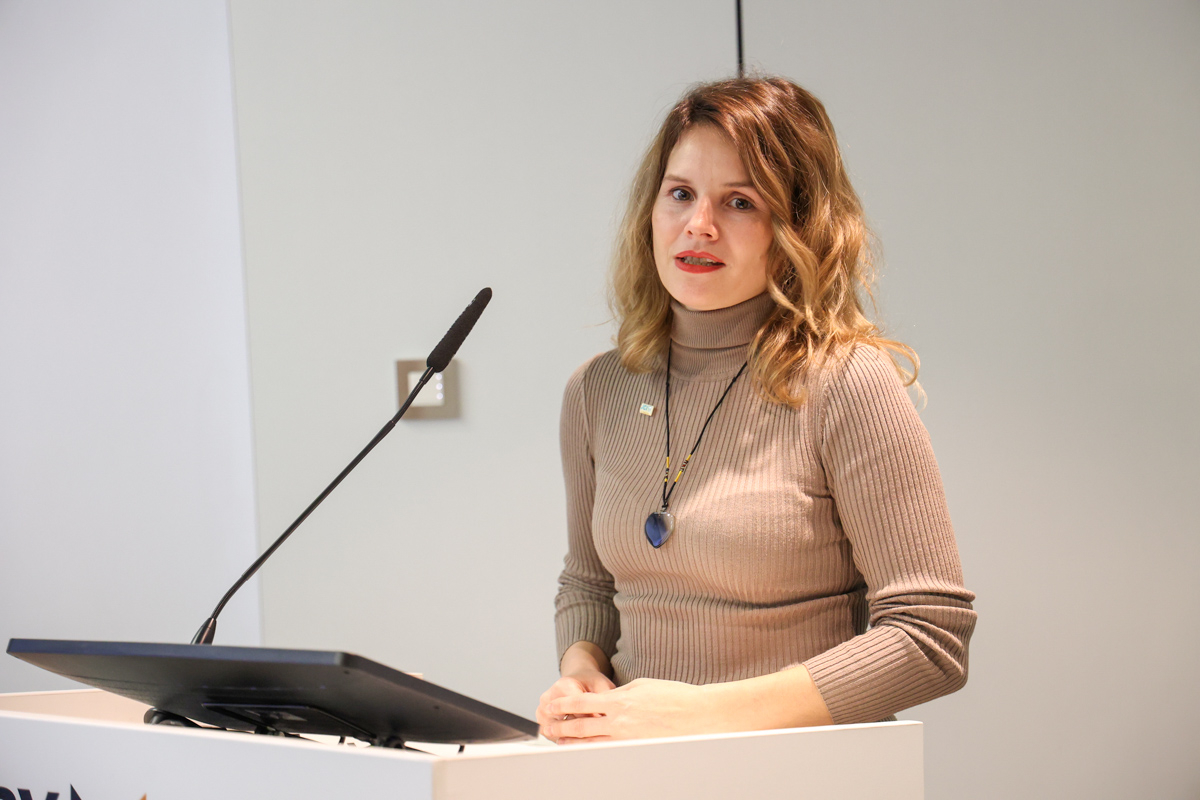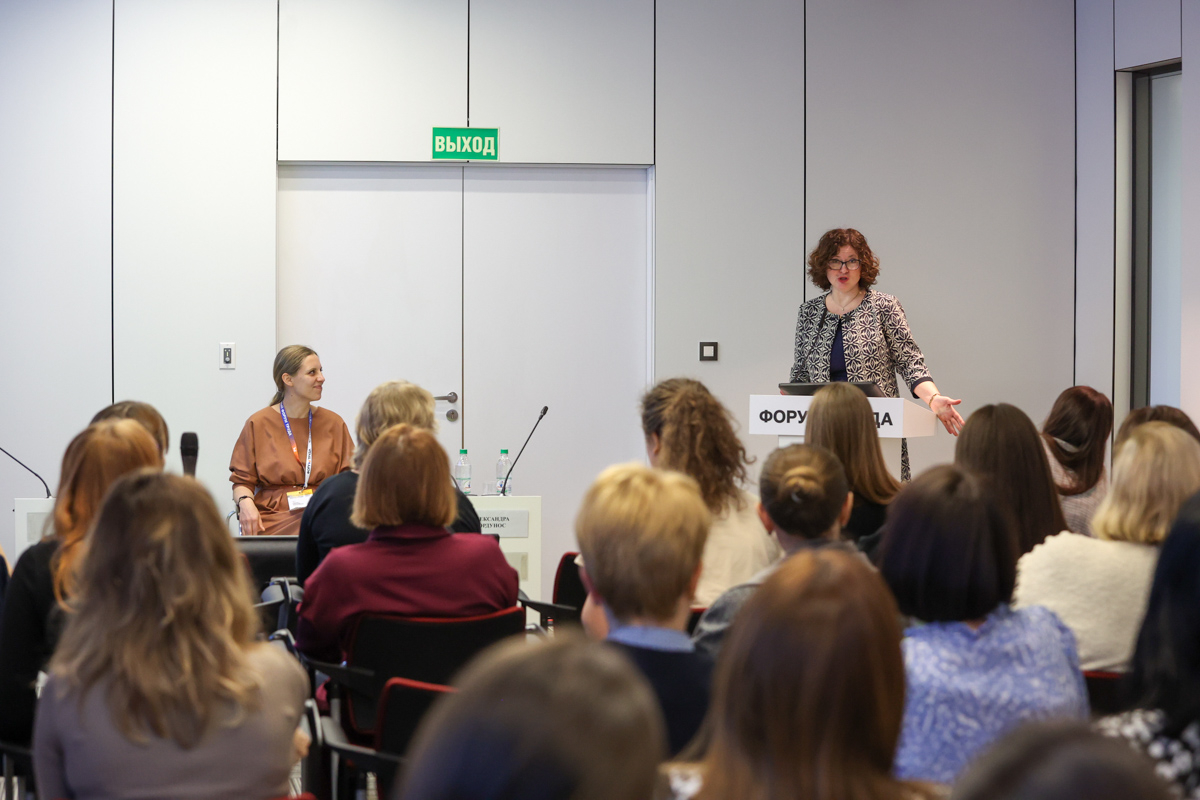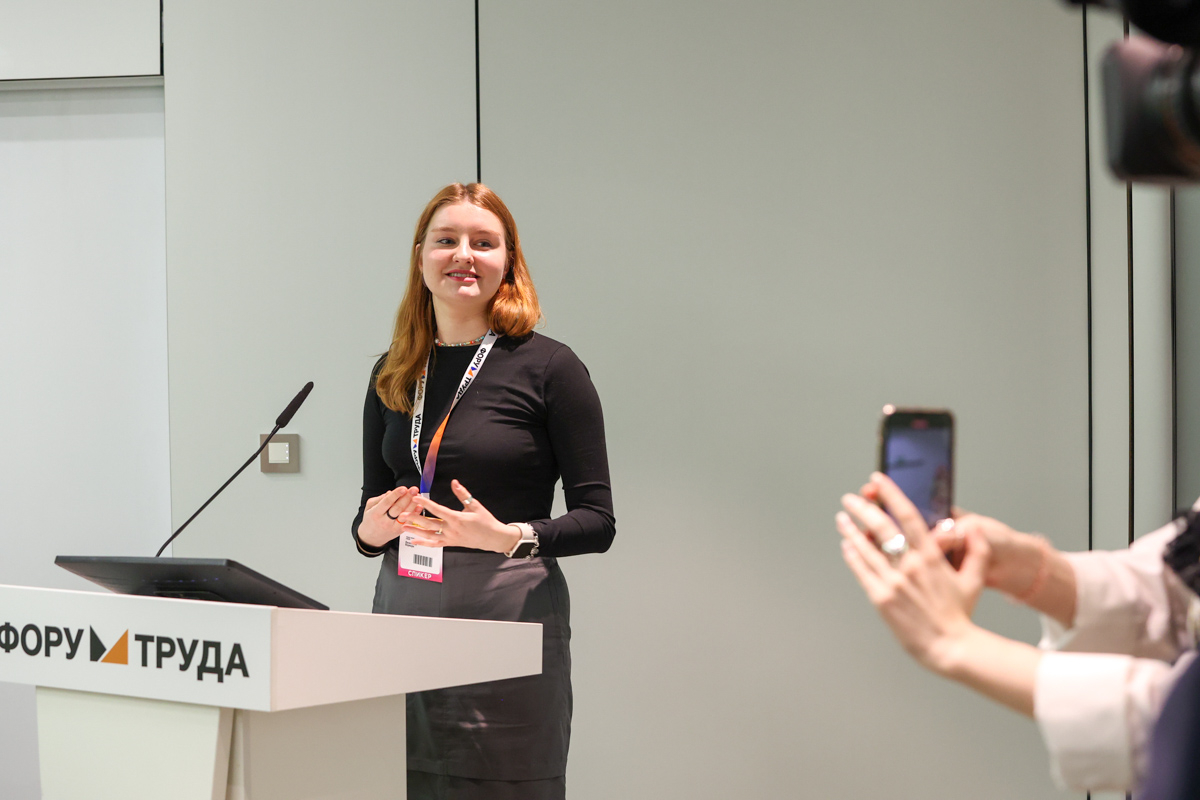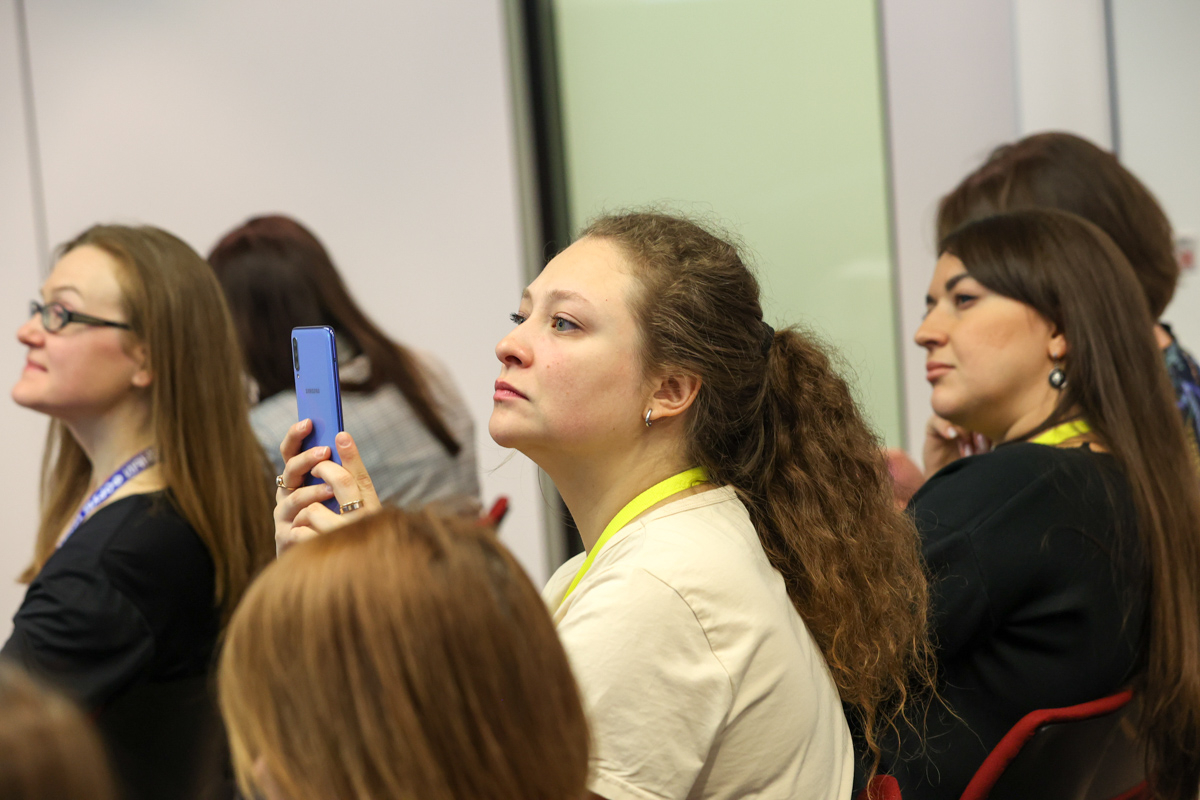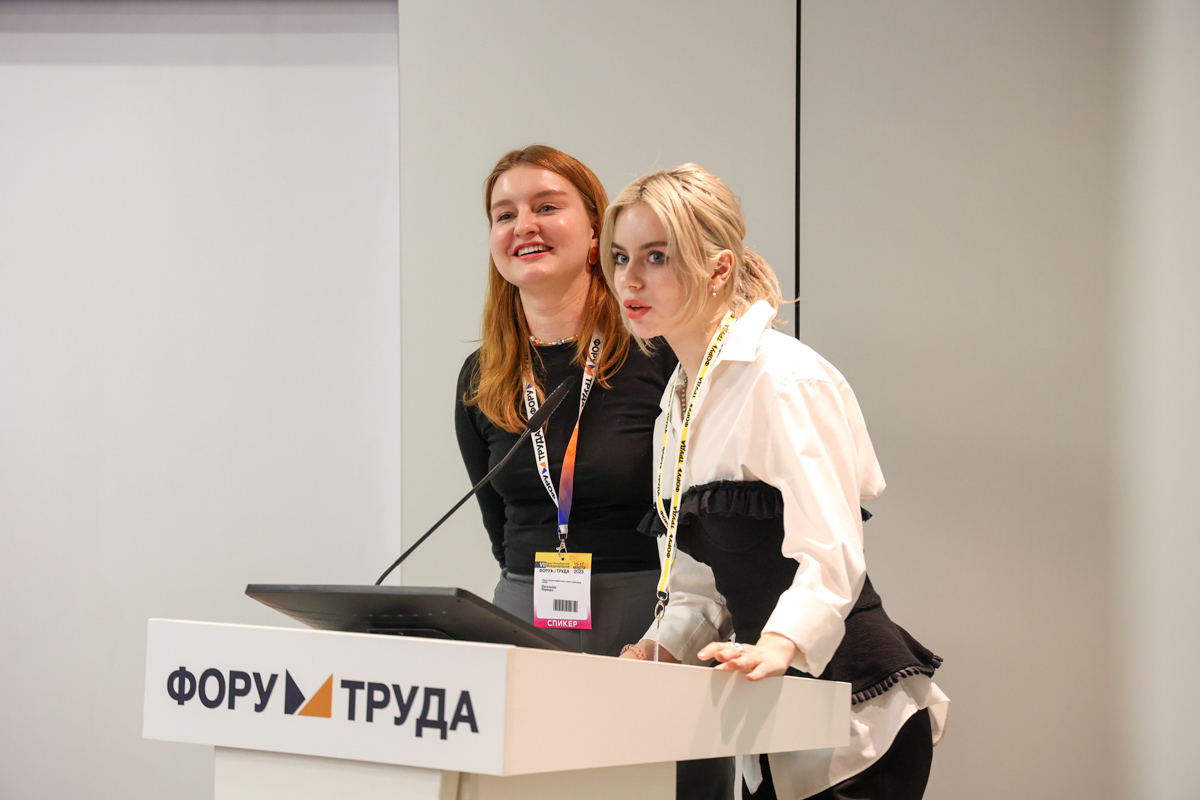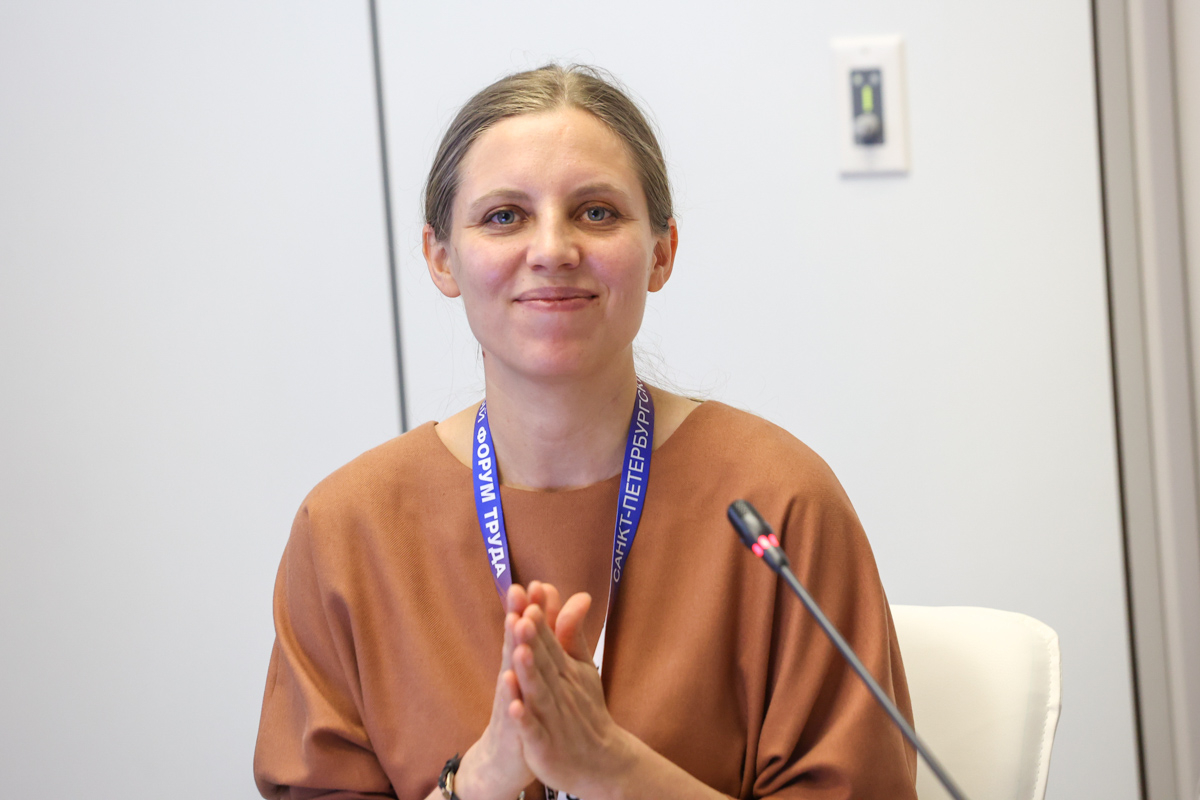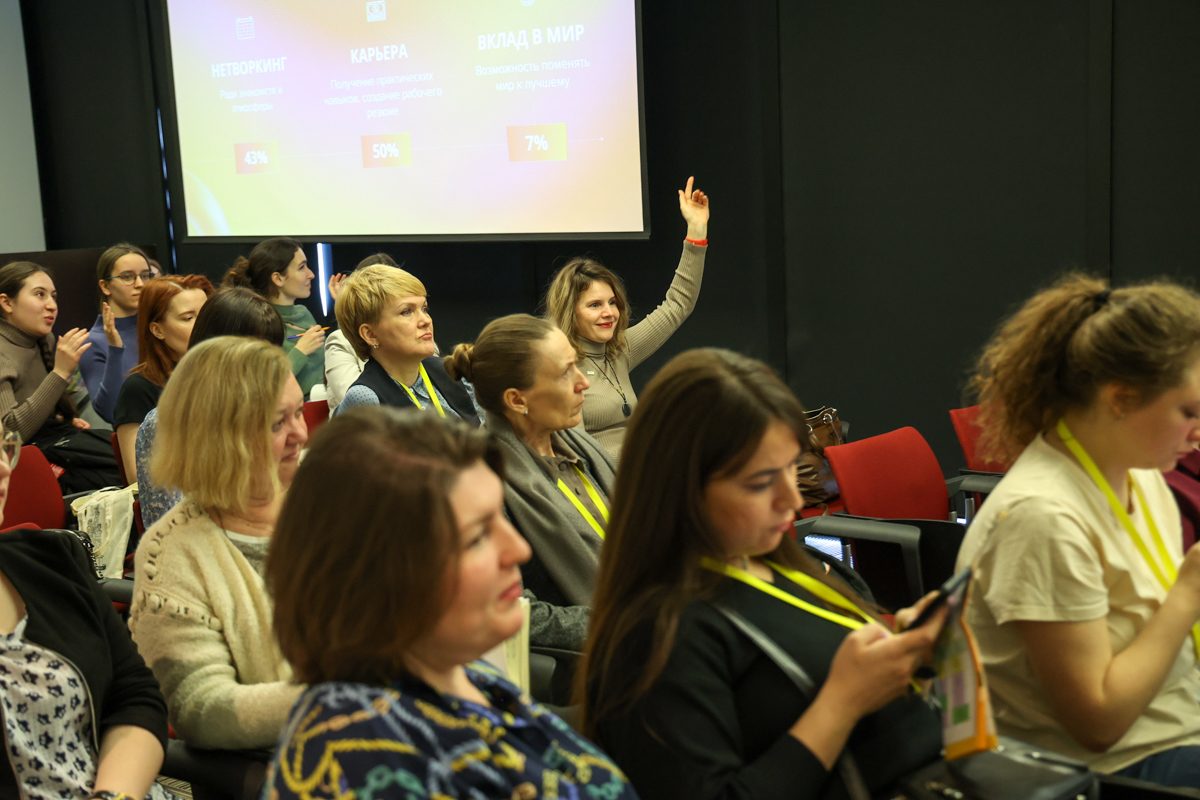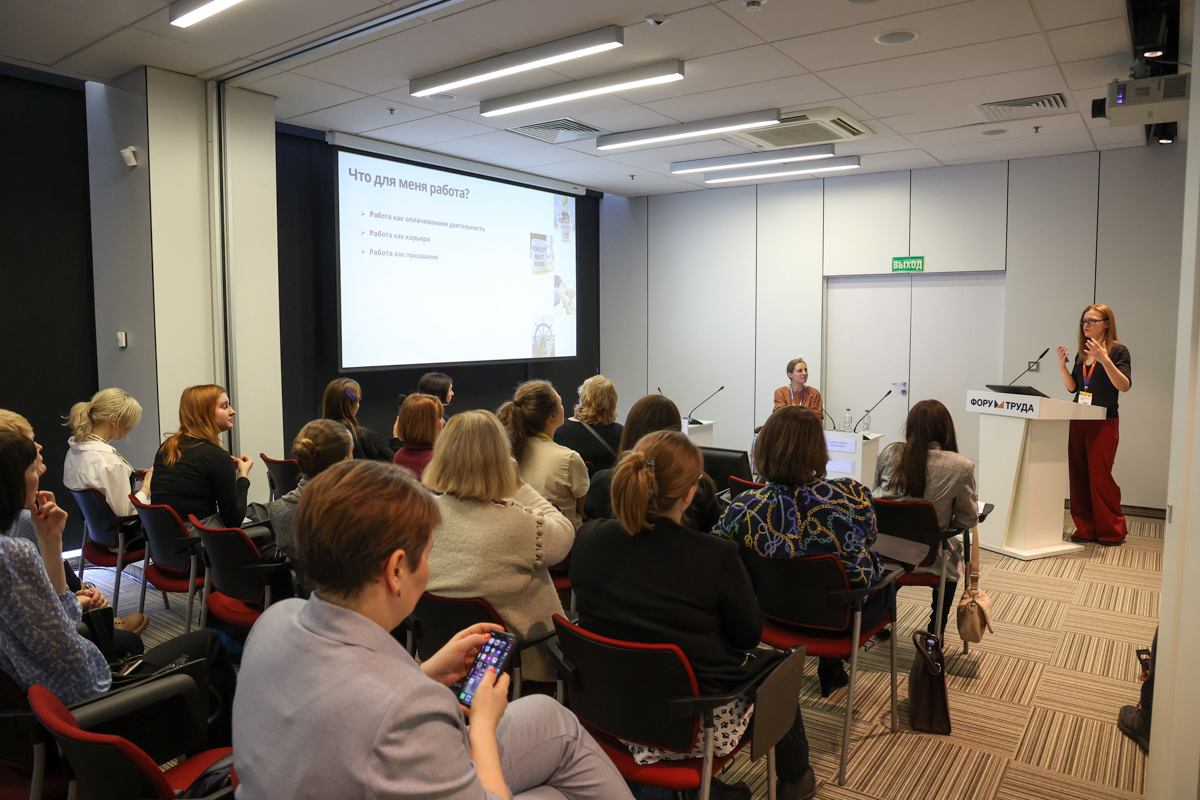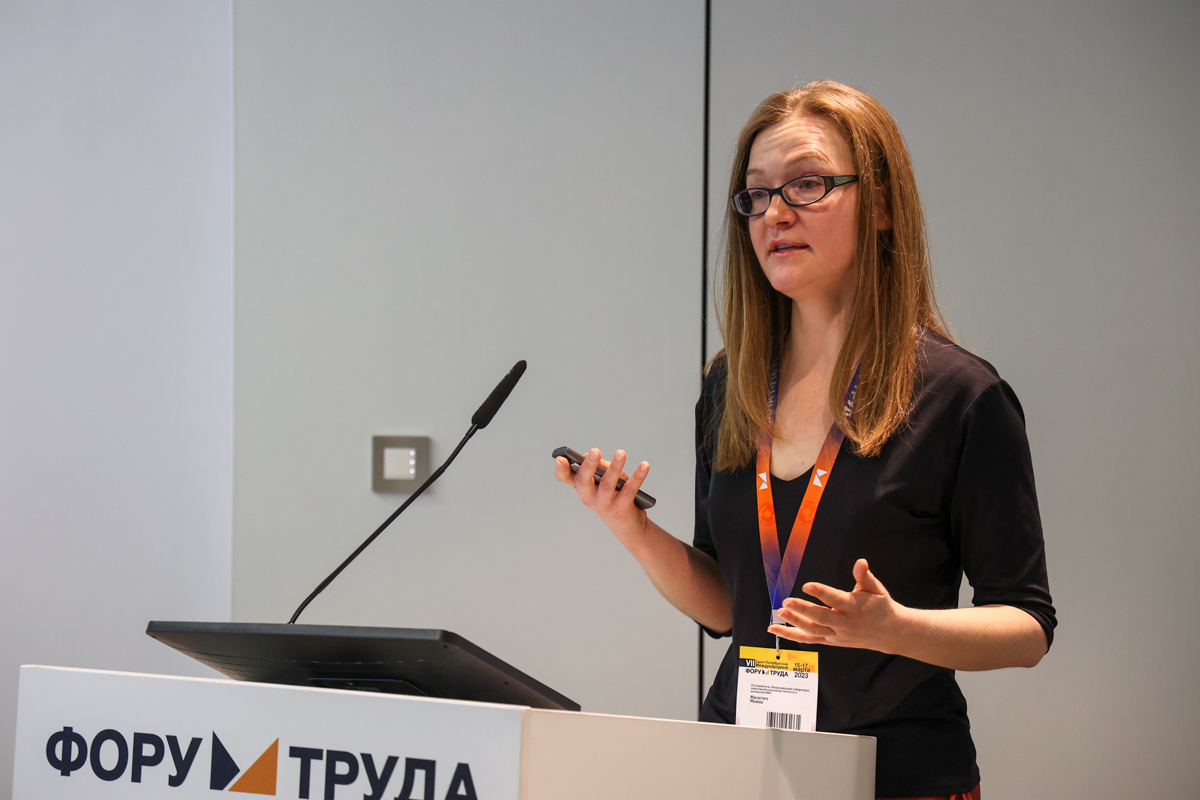Job crafting and self-initiated communities: St Petersburg University lecturer speaks about trends in female leadership and career development at the 7th St Petersburg International Labour Forum
Aleksandra Bordunos is Assistant Lecturer in the Department of Organisational Behaviour and Personnel Management at the Graduate School of Management of St Petersburg University. She has led a round-table discussion "Women’s career trajectories under conditions of uncertainty" at the 7th St Petersburg International Labour Forum.
The keynote speakers were representatives of self-initiated communities that help women to launch a career or continue their professional development after maternity leave. The panellists explored best practices for supporting women illustrated by examples from Russian and international companies.
Unwilling housewives
According to the National Strategy for Women 2030 survey, the employment rate of mothers of children aged 0-5 is 67.8%. It is generally accepted that women decide against entering the labour market, devoting themselves to the family. However, a new study, conducted by the SelfMama project and the experts from the Graduate School of Management at St Petersburg University and the Higher School of Economics, suggests otherwise. Many women simply do not know how to combine career and motherhood. They do not feel needed and competent in their job after a long break. Yet, the vast majority of women surveyed (91%) realise, while still on maternity leave, that they would like to return to work.
What prevents women from returning to work after maternity leave?
A key factor in employment for women with young children is a flexible work schedule. Having no opportunity to work from home and at convenient hours may lead to a prolonged maternity leave, a change of employers, and sometimes even to a career change.
According to the above mentioned survey, less than half (47%) of women return to previous jobs after having babies, while 40% of women opt for freelancing or self-employment. ‘Many women who did not return to their employer said: «It felt like the company did not need me anymore. When registering my maternity leave I felt dismissed. They deleted my company email and took away company equipment. I signed a sign-off sheet and they forgot about me, as if I no longer existed», said Svetlana Altukhova, managing partner of SelfMama.
62.8% of the women surveyed want to return to employers who stay in touch with female workers on maternity leave.
Problems are solved together
‘Women’s communities have been widely studied by social scientists. For example, in the Anglo-Saxon world, women’s associations are often formed within corporations. Such associations bring women with children under their umbrella, helping both the mothers and the employer to adapt to meet each other’s needs. It is essential that companies understand their employees’ needs if they want to retain them. In India, women’s associations were spearheaded by banks that taught young mothers financial literacy so they could start their own businesses. Interestingly, in Russia, women’s communities in most cases have been initiated by the women themselves. They start such projects with the support from companies, as well as from public and private funding sources,’ noted Aleksandra Bordunos, Assistant Lecturer in the Department of Organisational Behaviour and Personnel Management at the Graduate School of Management of St Petersburg University.
SelfMama, WomenOn!, Mamainsuccess, Leika, "Shag za Shagom" — these are organisations that provide support to working mothers, and their number is steadily growing. Young mothers can get advice and guidance from a coach and a psychologist. We also offer lectures and seminars on time management, project management and other aspects of business in a convenient format: remotely or at a live event that you can attend with your child. Women’s communities create a positive social environment encouraging their members to grow and develop and eventually find suitable employment.
How does this work?
‘At the moment, we are studying the experience of voluntary, self-initiated associations in Russia. Even though it is still early days, it seems clear to me that their role is extremely positive. Women who join the community become more aware: they learn about targeted support programmes and opportunities to increase their potential. Hence, they can immediately start developing in the area they are interested in. They attend classes, workshops, and counselling sessions. They try out different ideas in safe mode with broad community support. This can be an individual project or one of the organisation’s initiatives. The result is reassessment and a fresh start. Women build self-awareness and the boundaries between their work and family time. Equally as important are the networking opportunities these associations offer, helping to find business partners and friends, meet successful women and learn from their experience,’ explained Aleksandra Bordunos.
Regardless of whether you want to develop your career or start your own business, it is always useful to expand your social circle, find the company of those who understand you, spend time with children in an enjoyable setting and have professional guidance and support.
Svetlana Borisenko, Lecturer with the Regional Public Organisation "Youth Chamber of St Petersburg"
‘Once I myself came to such an event with a question: "To expand or not to expand my business?" I did want to grow, but I was desperately short of time for both business and family,’ shared her experience Svetlana Borisenko, Lecturer with the Regional Public Organisation ‘Youth Chamber of St Petersburg’, co-founder and member of the #mamainsuccess community, founder of the Gulena project for mothers with young children.
With the experience gained in the community, women build up the courage to change their situation in the workplace. And this is job crafting.
Job crafting — create your dream job yourself
Job crafting is the process of rethinking and redesigning your job tasks and your relationships with colleagues and superiors. Job crafting is shaping your job to fit you better, and making your work more meaningful and enjoyable. The term was coined by American psychologists Jane E Dutton and Amy Wrzesniewski in 2001. They conducted a study and found that hospital cleaners who thought of their work as being deeply meaningful and perceived themselves as caregivers worked better and felt happier than those who just swept and mopped the floors.
Both the work’s meaning and work schedules can and should be discussed with the employer. A happy employee is more productive and committed to the company.
‘The whole idea is to consciously reflect on your experience in the workplace. Very often people come with the request "I want to change my job". We begin to discuss with them what exactly they do not like about their job and whether they have thought about how they can make it more enjoyable. Most have never even thought about it before. Then, we apply the job demands—resources model. So, we ask: what is most energy-draining and most energy-giving in your job; whether it is possible to change something; and why not talk to your employer about your needs. Of course, your request may be denied, but you have not even tried yet. In the end, it often turns out that there is no need to switch jobs,’ said Maina Miletich, an organisational psychologist, a doctoral student at the National Research University Higher School of Economics.
Businesses learn from our experience
A new practice is being gradually introduced in Russia. Big business turns to independent women’s organisations for assistance in bridging communication gaps between managers and female employees with small children.
‘Together with Sberbank, we have developed a support programme for women on maternity leave. It aims to raise awareness of the role-based models of combining motherhood and work and of the tools that exist in the company to support female employees returning to work. Consequently, more female employees decided to go back to work after having a baby. Together with the Russian Post, we have created a parent community on their internal social network, where you can find all sorts of information regarding childcare and combining parenthood and work,’ said Svetlana Altukhova, managing partner of SelfMama.
Stereotypes
Nonetheless, many participants in the round-table discussion noted that even the best practices and women’s career and leadership development programmes will of no avail if stereotypes about the social roles of men and women persist in society. Women shoulder a heavy domestic burden, including caring for children and other family members. According to surveys by the Federal Service for State Statistics (Rosstat), working women spend more than twice as much time doing housework as men. This, indeed, creates difficulties in balancing family responsibilities and career progress.


